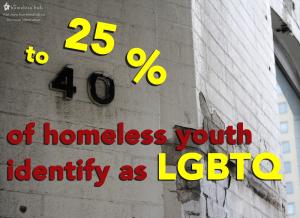
God Condemned In The Name of God
Love cannot rest as long as there is suffering. Love cannot rest until all are welcome.
The lectionary this past Sunday spoke to the urgency of Jesus’ mission and the high cost of following him. What was so urgent about his work, and why is the cost of following so high?
Jesus is on a mission to build a new world where no one is marginalized and condemned, where all are welcomed and loved in their full humanity. As he makes his way to the cross, he hasn’t a second to waste.
That’s the urgency to keep in mind as we explore last Sunday’s Gospel. It’s also an urgency we face today.
June 26th was the seven year anniversary of the legalization of gay marriage. It was a day to celebrate the triumph of love over judgmentalism and hate.
But it was also another day in a world in which the queer community faces dehumanization and condemnation, another day in which discrimination and threats of violence loom. After the Supreme Court announced the overturning of Roe versus Wade, Justice Clarence Thomas suggested that gay marriage might also be in jeopardy. And that’s just the latest in a long line of anti-queer legislation threatened or passed in recent years.
Laws and violence against the queer community are often rooted in religious prejudice. So it was for marginalized communities long before Jesus; so it has been ever since. Bigotry is sacralized and violence is veiled under a veneer of righteous virtue.
Jesus’ mission is urgent because what we do to each other, we do to God. Therefore, God is condemned in the name of God! Jesus must show what it means that God is Love. The cost of following Jesus is high because Love suffers with the suffering. But Love also creates a path beyond suffering into joy.
It is urgent to affirm everyone, especially those the church has historically condemned, in order to build a world of love for all. So although June has just drawn to a close, I want to consider the last Gospel of Pride Month in light of Jesus’ solidarity with the queer community.
God Condemns No One
As the Gospel begins, the disciples are going ahead of Jesus to prepare the towns to receive him. The disciples enter a Samaritan village, “but the people did not receive [Jesus], because his face was set toward Jerusalem.” Commentator headlines in many Bibles (including mine) declare that the Samaritans “reject” Jesus, but the text does not say that. Rev. Paul Nuechterlein suggests another possibility, that Jesus simply chose to bypass the Samaritan village. Why?
Picture the disciples going ahead of Jesus to Jerusalem, preparing towns along the way to receive him on his journey. Perhaps they are thinking of a violent overhaul of the entire system, taking on the Roman occupiers and the religious and political establishment that allows for them. Perhaps they are shouting, “Prepare the way of the Lord!” as they enter the towns, expecting anyone who is on their side to be swept up with them in the spirit of revolution.
And then, upon reaching a Samaritan village, Jesus walks right through.
The disciples probably turn to one another saying, “See? These people aren’t even worth his time! They aren’t with us!” Some may go on to say, “Well, of course they aren’t, they’re Samaritans. We always knew God condemned those people.” And some particularly zealous disciples ask, “Lord, do you want us to tell fire to come down from heaven and consume them?”
And Jesus rebukes them, saying “You do not know what spirit you are of.”
The Spirit of God, the Spirit of Love, condemns no one. Love does not condemn anyone based on color, gender, belief, sexual orientation, or any reason at all. Love celebrates all creation in its unique and diverse splendor.
The spirit of accusation, division and condemnation is born of human fear and insecurity. We condemn ourselves and each other by treating each other with condemnation! That’s the system of violence that Jesus is going to Jerusalem to overhaul.
Jesus is going to the cross where he will be murdered to reveal that God is in full solidarity with the victims, not the perpetrators, of violence. He will show what it means that God desires mercy, not sacrifice, by being sacrificed to humanity’s violence and rising with mercy.
His resurrection will vindicate all who have been shunned, outcast, brutalized, and killed by those who thought they were doing God’s will. And it will pave a new way forward for everyone, apart from victimization and condemnation.
Along the way, Jesus is teaching a hard lesson: love your enemies and embrace the outcasts.
Those you thought were condemned are loved. Those you dehumanized are human. The thing that must change in order for God’s will to be done on earth as in heaven is not our identities, but the way we treat each other.
Perhaps Jesus passed right through the Samaritan village because they didn’t need to hear the message of “love enemies and outcasts” as much as his own disciples did.
Love Cannot Rest
“Foxes have holes, and birds of the air have nests, but the Son of Man has nowhere to lay his head.”
Jesus was homeless. He was in solidarity with homeless people of all times and places, knowing their hunger and loneliness and physical and emotional pain. He was in solidarity with everyone neglected or cast aside. Including the up to 40 percent of homeless youth who identify as LGBTQIA+.
A large majority of homeless queer youth cite being made to feel unwelcome or forced out of their families as their reason for homelessness. That’s a staggering percentage of youth forced out by fear, misunderstanding, and — often — a violent, exclusive, sacrificial interpretation of religion.
Jesus’ homelessness was more than a lack of physical shelter. It was an indictment of a world where exclusion and violence are not only justified but vigorously defended in the name of God or a “righteous” cause. Violence against the queer community, among others, continues to be waged in the name of God. Harm is often compounded by the inequities of racism, patriarchy, and economic exploitation that have also been perpetrated by the conflation of wealth and power with God.
Where can universal, unconditional Love find a home in a world that worships violence? Where can Love cease to struggle and simply be in a world that shuns, demonizes, and kills?
Jesus’ claim to homelessness is both a mission statement and a warning to would-be followers. To follow Jesus in making the world a welcome, hospitable place for all cast out by family, church, and state is to risk being cast out oneself, as Jesus soon will be.
Nevertheless, love cannot rest.
Love cannot rest when families are at risk of being de-legitimized.
Love cannot rest while anyone is impoverished or endangered, especially when such poverty and danger come from those who invoke God or morality to deny them their dignity.
Transforming Death Into Life
To follow Jesus is to be in solidarity with those on the receiving end of hostility in a hostile world. Jesus says “leave the dead to bury their dead” because a world that marginalizes, excludes, neglects, and sacrifices the vulnerable operates according to the forces of death and does not know what spirit it is of.
To follow Jesus is to wage love steadily and courageously while there is so much work to be done. We may take occasional time for self care (even Jesus napped in boats, after all!) but we may not abandon the work of love in the face of hate and fear.
To follow Jesus is to transform this world that wages death into one that affirms life for all. It is where all of Love’s beloved — all humanity —need no longer struggle against the hostile forces of violence and exclusion but are free to live fully and abundantly.
Image: Statistic on LGBTQIA youth from Homeless Hub via Flickr, available through Creative Commons license.












